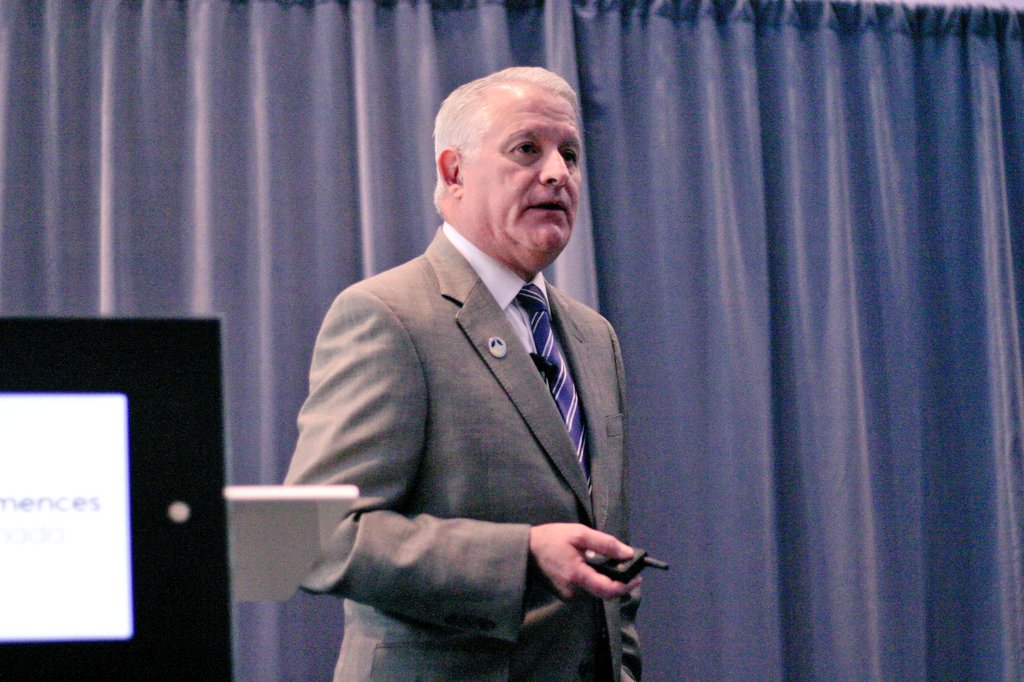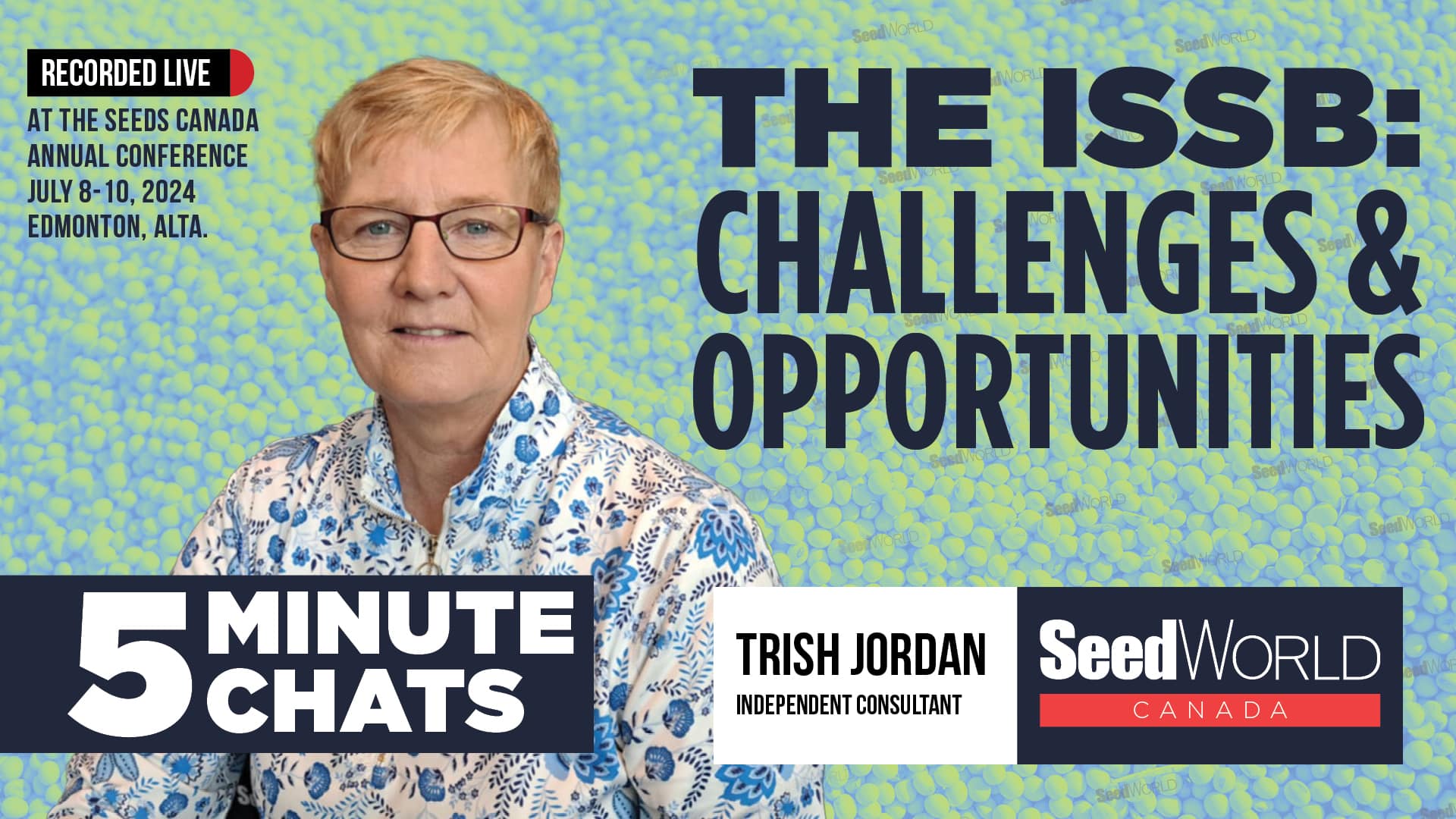Trish Jordan, known for her work with Bayer and its legacy company Monsanto, has been selected to continue developing Seeds Canada’s Inclusive Seed Standards Body (ISSB) concept.
In a news release today, Seeds Canada said due to personal circumstances Erin Armstrong is unable to continue her consultation and will be transitioning her research to Jordan.
“Jordan’s true passion is agriculture. She has always been passionate about the industry. She has been a farmer and agricultural advocate for many years. She has built strong relationships and networks with agricultural stakeholders, farmers, and the general public,” the release stated.
“In her role as a communicator, she has been able to bridge the gaps and promote understanding within this diverse community. Trish is adept at engaging in conversations about modern agriculture with those who have questions about it.”
Jordan’s work will continue to build on the work of Armstrong, focusing on assessing the needs of the seed sector and its stakeholders, Seeds Canada said. Jordan’s deliverables will include the development of a comprehensive model, including mandate, scope, representation, structure and governance, as well as a recommended timeline for development.

“Given Trish’s reputation throughout the agricultural industry as a dedicated problem solver and strategic communications advisor, we are confident that she will bring structure and independence to arrive at a successful conclusion,” said Barry Senft, Seeds Canada CEO.
During her extensive career in agriculture, Jordan has worked for Bayer Crop Science as senior business partner, government and industry affairs; Monsanto as director, public & industry affairs; and in senior communications roles for the Canadian Wheat Board, Canadian Foodgrains Bank, and Alberta Wheat Pool. She holds a B.A. in English from the University of Western Ontario and an M.A. in communications from the University of Calgary.
The advisory body concept, introduced by Seeds Canada at its 2022 annual general meeting, is positioned as a permanent group of seed and grain industry stakeholders that can provide guidance directly to the Canadian Food Inspection Agency (CFIA). The group also allows for greater diversity and transparency of decision-making and prevents conflicts of interest between service delivery and setting standards, according to Seeds Canada.
“Farmers’ ability to access advancements in technology is a vital outcome of a successful regulatory system. The concept of the advisory body is to recommend regulatory changes to CFIA for timely consideration and implementation; the current process takes significant time and can leave farmers without a competitive edge,” Senft said.
Seeds Canada has been an advocate for the Seed Regulatory Modernization (SRM) to shift its current operational and technical focus to issues that could make a large impact on the entire agriculture industry, such as a variety of registration frameworks and domestic seed quality assurance needs, the organization says.
“Technical and operational details should be transferred to the independent advisory group to resolve on an ongoing basis so they are not bound to the SRM consultation timeframe. The advisory body should be independent of any existing industry association and should report directly to the CFIA,” the news release goes on to say.
“The mandate of the advisory body would include policy related to the seeds regulations, standards, and the amendments of those parts of the regulations which are incorporated by reference. Ensuring our regulations are fit for purpose and relevant to the needs of an evolving sector should not be restricted to a single five-year window. ”













